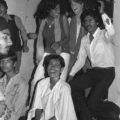A few weeks ago I wrote about Woodstock School, and you probably guessed from the tone as well as the content that the place means a lot to me. Before I arrived at Woodstock, I had led a tumultuous life which included attending nine different schools in several different countries. Woodstock was a haven and a refuge, and it provided a much-needed stable point of reference in my chaotic life.
So, if there is any place in the world that I truly call home, it’s there – on a beautiful campus tucked away in the foothills of the Himalayas, far from the world and all its troubles.
Or so I thought.
Today, through the alumni network, I learned about the publication in The Indian Express newspaper of the prison diary of Ahmed Omar Sheikh. A British national of Pakistani origin, he was jailed in India in 1994 for kidnapping four people. His objective was to hold them for a very particular ransom: the release of Maulana Masood Azhar, a Kashmiri separatist militant then in an Indian jail. In 1999, a plane was hijacked in India, and this time Sheikh succeeded: the planeload of hostages was released in exchange for the freedom of Azhar, Sheikh himself, and another. According to the Express, “The FBI is exploring leads that Sheikh could have been involved in the transfer of $100,000 to Mohammad Atta, one of the hijackers in the September 11 attacks in the US.”
The diary recounts Sheikh’s arrival in India in 1994 and his various attempts to find foreigners, preferably Americans, to kidnap. His plan was to befriend a foreigner travelling alone, and invite the person to visit his “family”, who would then take the traveller hostage. While travelling about in search of victims, Sheikh wrote:
“Next morning, I went to Woodstock School… and applied for a job as a teacher. … if I got it, I could easily bring one of my co-teachers down to visit my ‘relatives’… I had an interview with the vice-principal and I didn’t get offered the job!”
In other words, he hoped to take a job teaching at Woodstock so that he could kidnap one of its American teachers.
In the event, nothing happened; the vice-principal either smelled a rat, or simply didn’t care for Sheikh’s qualifications. But this news was a fist in the stomach to me. I had already accepted, reluctantly, that now is not the time for me to go to Mussoorie for the 20th-anniversary reunion that I and my classmates were so looking forward to. I’m not so concerned about my personal safety – I have a very good sense of self-preservation and am alert to possible dangers. But, with war going on in the vicinity, things could get messy and travel become more difficult, and I didn’t want to leave my family in Italy to worry about me if I got stuck.
But now I must even more reluctantly accept that my beloved school is a potential target. And that truly hits me where it hurts.
Postscript
In July, 2002, Shaikh was sentenced to death in Pakistan for masterminding the kidnapping and murder of Daniel Pearl.






